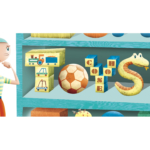
04 Jan The Purpose of Praise
Summer holidays are the perfect chance for parents to try more positive reinforcement, says Clinical psychologist Renee Mill as she considers how it affects children’s self-esteem.
Being realistic is often hard for parents because they truly want to boost their child’s ego, and worry that being realistic will deflate their child.
Most parents today understand that self-esteem is a vital ingredient of their child’s success at school and in friendships. Penny* and Mark* were no exception when they consulted me about their daughter Jessica*. They told me that from a very early age they had tried to build Jessica’s self-esteem and yet, at the age of seven, she clearly still lacked confidence. One example was at a school pantomime last year, when Jessica ‘froze’ on stage. Another was her avoidance of activities she felt she was not good at, such as painting.
Penny and Mark were upset and confused about what was happening with Jessica and that is why they came to see me. There were no major problems or stresses in their lives, Jessica was going to an excellent school, and Penny and Mark were involved and concerned parents.
I asked Jenny and Mark how they had attempted to build Jessica’s self-esteem over the years. Proudly, Mark told me that since Jessica was little, he had told her every day that she was the most special girl in the world. Penny told me that when Jessica brought home drawings from preschool, she would praise them as if they were professional works of art. In fact, it soon became clear to me that whatever Jessica did, no matter how mundane, her parents would go out of their way to acknowledge it.
Helpful praise focuses on the character of the child rather than the outcome of an activity.
There are many facets to building self-esteem in a child. But over the last 15 years there seems to have been so much emphasis placed on positive reinforcement and praise that other factors have been neglected. I decided first to focus on teaching these parents about ‘helpful praise’ and ‘unhelpful praise’ because praise was the area that they had put so much energy into already. The other aspects could be addressed later.
I explained that for praise to be helpful and effective in building self-esteem, it needs to be specific, descriptive and realistic. Moreover, helpful praise focuses on the character of the child rather than the outcome of an activity.
I explained that when Jessica is told that she is ‘the best girl in the whole world’, it is unhelpful. She may feel good at the time but it will not be effective in building self-esteem. I asked Penny how she would feel if Mark told her that she was the most beautiful woman in the world. Penny said that she would know that it was not true but would appreciate Mark trying to help her to feel good about herself. In other words, she felt loved by Mark but the praise did nothing to enhance her feelings of worth. I then asked her how she would feel if Mark told her that she was the most beautiful woman in the world to him. She said that that would feel genuine and would also make her feel special to Mark.
A compliment that applies to the ‘here and now’ is more effective than a global statement
Young children understand that they are not ‘the greatest’, ‘the smartest’ or ‘the prettiest’. Children are more than happy to hear that their parents would not swap them for any other child and that they are the best child the parents could have asked for.
A compliment that applies to the ‘here and now’ is more effective than a global statement like ‘you are the cleverest girl in the world’. While Jessica may have done well in one maths test, she knows that in the previous test Monica performed better. She also knows that Lisa excels in English and she does not. Thus, helpful praise would be to tell Jessica that ‘This test shows that you can add quickly and accurately. Well done.’ This will give her an insight into a specific ability that she has, which in turn will boost her perception of herself.
A comment that is descriptive is more helpful than a ‘blanket’ comment. In order for Jessica to know what constitutes good work, she needs to hear from the adults in her life what that means. Instead of saying ‘good work’, it is helpful to say ‘your writing is really neat and easy to read’ and Jessica will know exactly what she did right. This will assist her to continue to be neat. It will also tell her that she has a specific skill, and that will go a long way to giving her positive feelings about her abilities. Some examples of helpful comments when Jessica draws include: ‘Your drawing is so colourful and makes me feel happy when I look at it’; or ‘I see you put a lot of detail into the flowers in your picture – that must have taken you a long time to do’; or ‘That blue in the background really brings out the shape of the boat. I see that you understand the importance of the background in a painting’ or ‘I like the free strokes in the front. They give the picture a relaxed feeling.’ At this point, Mark confessed to me that at times in the past he had found it exhausting having to be overjoyed at everything Jessica did. He felt relieved that he could increase his daughter’s self-esteem simply by describing something that she had done in an affirming way.
Being realistic is often hard for parents because they truly want to boost their child’s ego, and worry that being realistic will deflate their child. I explained to Penny and Mark that their daughter, like all children, evaluates her work automatically and judges it accordingly. Trying to reassure Jessica that her work is not a mess, when to Jessica’s mind it is, does nothing to assist Jessica feel better about herself. What will help her to feel adequate is describing something about her work that shows that she did, indeed, do something well. For example, when Jessica says that her story is boring, she would find it helpful if Mark said, ‘I understand that you feel that way. However, I liked the names of the characters. I thought that they were original.’ This type of comment is empowering as Jessica will feel that she did something worthwhile and she will be motivated to try again. She will also adore her dad for not trying to change her judgement of her story, and validating her experience instead.
At this point, Penny interjected, saying that what bothered her most was what to say when Jessica failed at something. For example, there is no getting away from the fact that Jessica had frozen at the school pantomime. It had been devastating for Jessica and she had felt like a ‘loser’. Penny had tried to reassure her that it was only a pantomime and was not important in the grand scheme of things, but to Jessica it was a significant event. Penny then tried to remind Jessica about all the things that Jessica is good at, such as maths, but Jessica would not be comforted. Being good at maths did not take away the distress of freezing during the pantomime. Penny felt helpless in this situation and then resorted to saying that Jessica should know that no matter what happens in life, Penny will always love her. Jessica stormed out of the room.
I explained to Penny that when a child fails at something, she needs to be validated as a human being. A parent does this by focusing on the character of the child rather than on the outcome of a situation. In this case, Jessica demonstrated strength of character by going on stage even though it was one of her personal nightmares. I suggested that the next time something happened to make Jessica feel like a failure, it would be helpful if Penny said something like: ‘It must have felt awful to be stuck on that stage. But it took a lot of courage for you to go up there in the first place and do what is hard for you. You could have avoided it but you faced your fear – that is an accomplishment.”
In my opinion, focusing on the character of a child is the secret to developing self-esteem in all children. I stressed to Penny and Mark that even if Jessica does brilliantly in a maths test, her character traits and not her mark should be lauded. Instead of shouting ‘brilliant’ when she scores 100 per cent, it would be preferable to say something like ‘I noticed that you worked really hard for this test. Well done for being so conscientious and responsible. Those are important values in life.’
With time, as Jessica develops a clearer picture of her personal qualities, and measures herself by these criteria and not by outcomes, her self-esteem will grow. She will be assisted in this aspect of her life if those around her offer helpful praise, because it is this form of praise that hits the mark and builds self-esteem.
*Names have been changed.
Renee Mill is a clinical psychologist in private practice.




